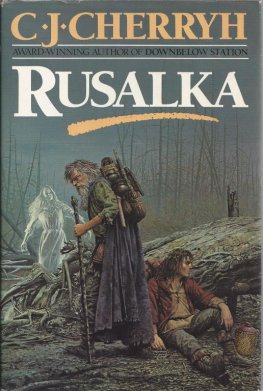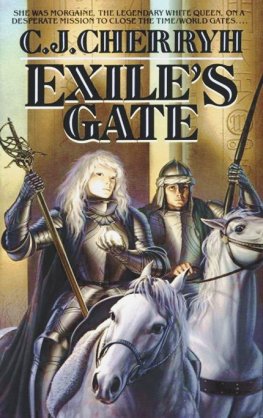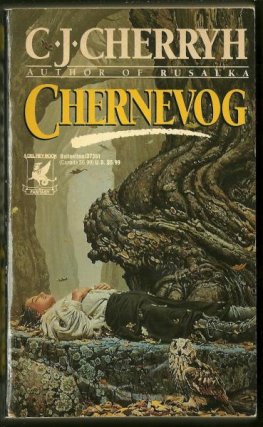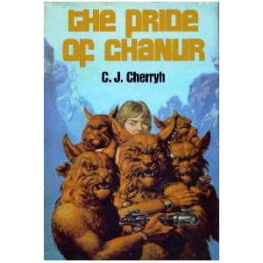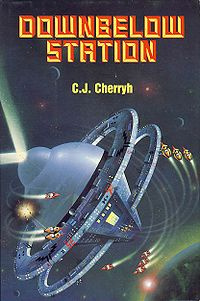C. Cherryh - Kutath
Here you can read online C. Cherryh - Kutath full text of the book (entire story) in english for free. Download pdf and epub, get meaning, cover and reviews about this ebook. genre: Romance novel. Description of the work, (preface) as well as reviews are available. Best literature library LitArk.com created for fans of good reading and offers a wide selection of genres:
Romance novel
Science fiction
Adventure
Detective
Science
History
Home and family
Prose
Art
Politics
Computer
Non-fiction
Religion
Business
Children
Humor
Choose a favorite category and find really read worthwhile books. Enjoy immersion in the world of imagination, feel the emotions of the characters or learn something new for yourself, make an fascinating discovery.

- Book:Kutath
- Author:
- Genre:
- Rating:4 / 5
- Favourites:Add to favourites
- Your mark:
- 80
- 1
- 2
- 3
- 4
- 5
Kutath: summary, description and annotation
We offer to read an annotation, description, summary or preface (depends on what the author of the book "Kutath" wrote himself). If you haven't found the necessary information about the book — write in the comments, we will try to find it.
Kutath — read online for free the complete book (whole text) full work
Below is the text of the book, divided by pages. System saving the place of the last page read, allows you to conveniently read the book "Kutath" online for free, without having to search again every time where you left off. Put a bookmark, and you can go to the page where you finished reading at any time.
Font size:
Interval:
Bookmark:
version="1.0" encoding="windows-1252"?>romance_sfC.J.CherryhKutath
The Faded Sun Trilogy Book 3
1979enHaaliFB Tools, VIM, Haali Reader2002-07-29#bookz1.0C. J. Cherryh
Kutath
Chapter One
There was chaos about the docking bay; Galey observed it as he was coming in, heard it, a chatter of instructions in his ear, warning him to keep his distance. He held the shuttle parked a little removed from the warship, watching kilometer-long Saber disgorge a trio of small craft. Blips showed on his tracking screen, an image supplied him by Saber-com, from Sabers view of things. One blip was himself; one other was blue and likewise human that had to be SantiagoSaber had deployed the insystem fighter between itself and the red blip that was Shirug.
The outgoing blips were likewise red; regul shuttles in tight formation. Galey read the situation uneasily and kept his eye to the steady flow of information on the screen. There was one dead regul to be disposed of; that was likely what was in progress out there the late bai Sharn Alagn-ni, ferried out to her own ship for whatever ceremony the regul observed with their dead. Sharn; ally, as all regul were allies according to the treaties according to the agreement which had brought a human and a regul warship into orbit about this barren world, this home base of the mri. Regul made Galey's skin crawl. It was a reaction he did not speak aloud; promotions in the service were politics, and politics called regul friendlies.
Mri, now mri, were near human-looking, whatever the insides of them might be like. Galey hated them with a different, dutiful hate. He was Havener, of a world lost and retaken in the mri wars. Parents, a brother, cousins had vanished into the chaos of that war-torn world and never surfaced again. It was a remote kind of grief, rehearsed guiltily in every other scene of slaughter he had witnessed, but he could not recover the intensity of it. His kin were lost, in the sense of not found, misplaced in the war and gone; dead or alive, no knowing for sure. He had not been home when the strike came, and in the years after, the service had become home, Lancet, Saber,Santiago, whatever ship received his papers, wherever his current ship took him, live or die. Mri were like that. Just soldiers behind their black robes and veils. Nothing personal. He had a friend who had gone mri he had seen a different look on him after the years of absence, disdainful, remote; there was something heart-chilling in standing close to a man in that black garb, something intimidating in gazing close at hand into a face of which only the eyes were visible amazing how much of expression depended on the rest of the face, concealed behind black cloth. But for all of that, a human could understand them.
Regul regul had hired the ships, the weapons, the mri themselves, and planned, and named the strikes, and profited from them. Forty years of war, bought by regul. An investment Galey sound the words out in his mind, distastefully. Po-li-cy. Cash on the table. Big folk, the regul, who sat fat and safe, who made the decisions and put out the cash, sending their mri mercenaries out to war. Humans and mri killed each other, and the wise old regul, reckoning a forty-year war nothing against their centuries-long lifespans, and reckoning the tally of gain and loss kept the war going just so long as it profited them.
In the same way the regul turned up on the human side during the cleanup had turned on their own mercenaries, slaughtering them and the mri's civilian population without warning. That was the mri's final payoff for serving regul. A simple change of policy; regul knew the right moment to move. And, truth be told, everything human breathed a sigh of relief to know the mri were gone, and that someone else had pulled the trigger.
Regul came now, having tracked the last two survivors of the mri who had served them, to their homeworld, to Kutath, the far, far origin of their kind. Regul had rushed ahead to destroy a peace message from Kutath before humans could hear it, had fired on a quiet world and elicited answering fire before humans understood the situation. More mri were dead down there. The last remnants of dying cities were shot to ruin; the last of a dying species were made fugitives on their own world the last place, the very last, that mri existed.
Something tight and unpleasant welled up in Galey's throat when he thought of that Somehow it was Haven again, and civs getting killed. He had come very far to feel something finally. It was ironic that he felt it for the enemy, that deep-down sickness at the belly that came of seeing an unequal contest.
It would have been that kind of blind, helpless death for his own kin. It gave him nightmares now, after so many years. No fighting back; a city under fire from orbit; no ships; no hope; folk armed with handguns and knives against orbital strike.
Everything dead, and no way out.
There was a little drift in his position. It had been minor, but the shuttles were still in his path and he had to maintain a while longer. He corrected a fraction. Sweat was running down his sides. He tried to stop thinking, tried to concentrate on his instruments a time. There was no reason for uneasiness. The feeling simply grew. And in time the thoughts crept back again. His eyes traveled inexorably and unwillingly toward the outward view. Kutath's dying surface was barely in his visual field. The rest was stars, fewer than he ever liked to see. He sweated. He had never been in a place where the goblins got to him so thoroughly, those ancient human ghosts that tagged after a man in the deep. They dogged him, kept, as proper ghosts should, just behind him gone when he would look. Look back, they whispered against his nape, stirring the hairs, Look again.
The stars hung infinite in his drifting view, as deep down as up, as far on left as on right; and a near star, Na'i'in, the mri called it, which would make even Saber a mote of dust beside it. All, all those little lights which were suns, and some cloudy aggregates of suns, themselves reduced to dust motes by distance which reached out from himself, who was the center of the universe, and then not an insignificance, less than the mote of a world, far less than a sun, infinitely less than the vast galaxies, and the distance, the cold, deep distance that never stopped, forever.
Move it, he thought at the ships which held him off. He wanted in, wanted in, like a boy running for his front door and warmth and light, with the goblins at his back. It had never gotten to him, not like this.
The mri had a word for it; the Dark. Scientists said so. Anyone who had traveled the wild places in little ships had to have a word for it. Except maybe regul, who could not imagine, only remember.
Mri felt it. He understood beings who could feel it.
He worked his hands on the controls, heard the chatter in his ear, the thin lifeline of a voice from Saber, proving constantly his species was real, however far they sat now from friendly, trafficked space.
Real. Alive. Men existed somewhere. Somewhere there were human worlds, less than dust motes in the deep, but living. And that somehow affirmed his own reality.
Was it this, he wondered, for the two mri, last of all their company who had run this long, desperate course home? Their little mote was dying, an old world under an old sun, and what fragile life of their kind survived here, regul refused to leave alive. Was it such a feeling, that had made home more urgent for them than survival to come in out of the Dark, even to die?
He began to shiver, catching a moving dot of light among all the others. Shirug. The regul shuttles were too far and too small to see now. It had to be regul
Next pageFont size:
Interval:
Bookmark:
Similar books «Kutath»
Look at similar books to Kutath. We have selected literature similar in name and meaning in the hope of providing readers with more options to find new, interesting, not yet read works.
Discussion, reviews of the book Kutath and just readers' own opinions. Leave your comments, write what you think about the work, its meaning or the main characters. Specify what exactly you liked and what you didn't like, and why you think so.

